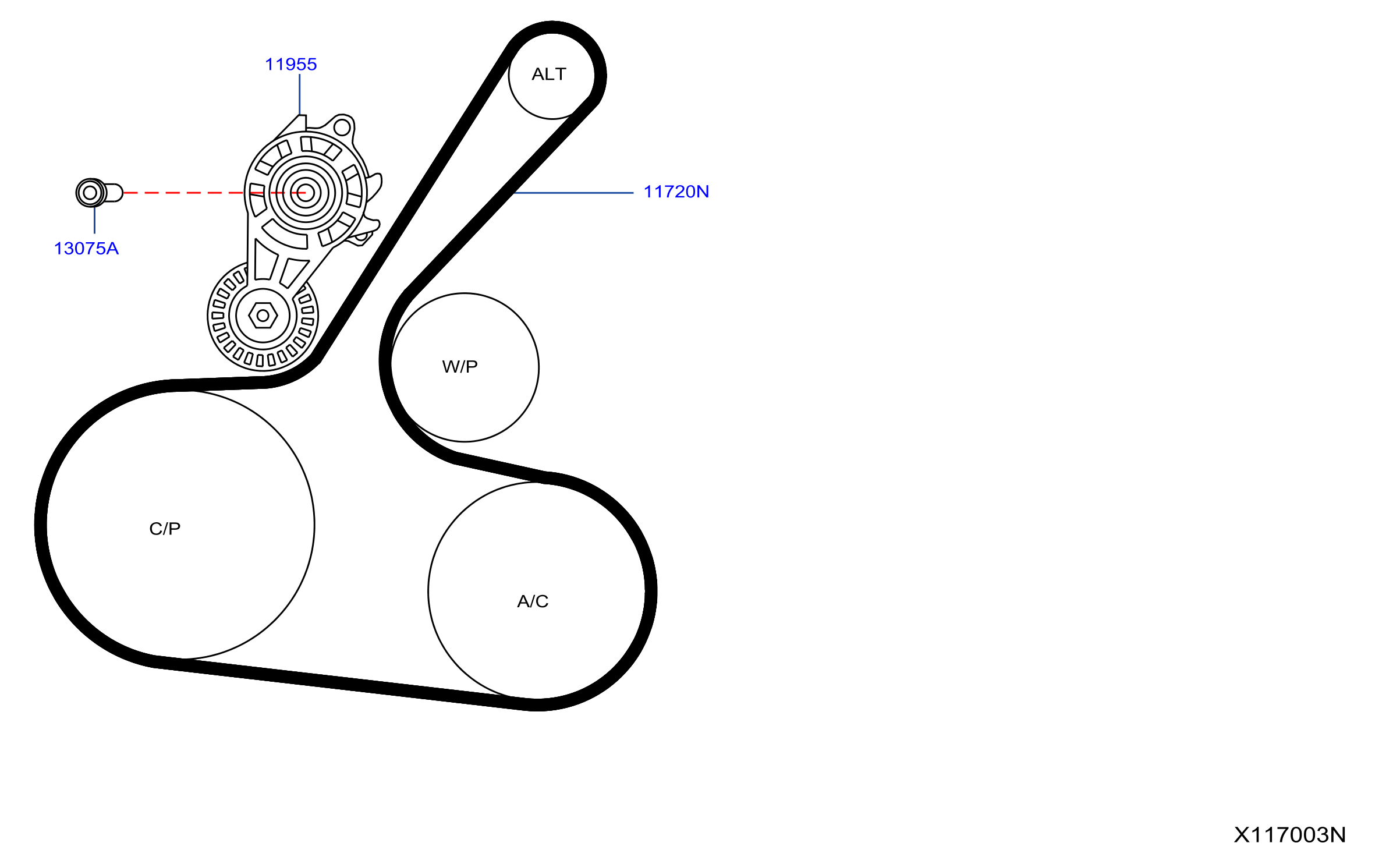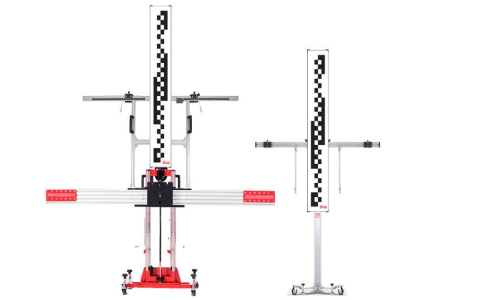A persistent belt squeak in your 2015 Nissan Altima 2.5L is commonly caused by a worn serpentine belt, failing tensioner, misaligned accessory, or contamination. Addressing it requires methodical troubleshooting and correct belt routing.
Essential Tools & Supplies
- New OE or Premium Serpentine Belt (e.g., Gates K060780)
- Serpentine Belt Tensioner Wrench (typically 14mm or 15mm square drive)
- Socket Set & Ratchet (10mm, 12mm, 14mm common)
- Torque Wrench
- Brake Cleaner & Lint-Free Rag
- Rubber Gloves & Safety Glasses
Understanding the Belt Routing
Referencing the 2015 Altima 2.5L diagram:
- The belt wraps clockwise around each component.
- It rides on the flat side of the tensioner pulley and idler pulley.
- It wraps around the outside of the crankshaft pulley (harmonic balancer).
- It wraps around the outside of the alternator pulley.
- It wraps around the outside of the power steering pump pulley.
- It wraps around the outside of the air conditioning compressor pulley.
Locate the Belt Tensioner: It's the spring-loaded arm with a pulley, usually positioned above the alternator on the QR25DE engine.

Troubleshooting & Replacement Procedure
1. Initial Diagnosis:
- Start the engine cold. Squeak on startup often indicates belt glazing or tensioner weakness.
- Mist a small amount of water on the belt ribs while running. If squeak stops temporarily, confirm belt wear or contamination. NEVER spray lubricants.
2. Visual Inspection:
- Check belt for cracks (especially deep ones in the ribs), fraying, glazing (shiny surface), missing ribs, or oil contamination.
- Inspect all pulleys for roughness while spinning by hand (engine off!), wobble, or seized bearings.
- Examine tensioner arm for smooth movement and signs of fluid leaks (if hydraulic).
- Check the harmonic balancer (crankshaft pulley) for any signs of separation or wobble when running.
3. Belt Removal:
- Disconnect the negative battery terminal for safety.
- Fit the tensioner wrench onto the tensioner’s square drive.
- Slowly rotate the tensioner clockwise to release belt tension (requires significant force).
- Slip the old belt off the easiest accessible pulley (usually the alternator or idler). Release the tensioner slowly.
4. Pulley Cleaning & Inspection (Critical Step):
- Thoroughly clean all pulley grooves using brake cleaner and lint-free rags. Remove all oil, grease, and debris. Ensure pulleys are DRY.
- Re-check pulley alignment and bearing condition (spin freely, no noise/play).
5. Installing the New Belt:

- Verify the new belt part number matches your Altima.
- Place the belt over every pulley EXCEPT the tensioner pulley or the easiest pulley to access last.
- Engage the diagram: Double-check routing follows the factory path meticulously before releasing tensioner.
- Fit the tensioner wrench and rotate clockwise until you can slip the belt onto the final pulley.
- Slowly release the tensioner until it's fully seated. The belt should feel snug.
- Visually re-confirm the belt is correctly seated in every pulley groove.
6. Post-Installation Checks:
- Reconnect the negative battery terminal.
- Start the engine and listen immediately for squeaks. A brief chirp (1-2 seconds) is normal as the belt seats. Persistent squealing indicates incorrect installation or another fault.
- Observe belt tracking – it should run true without walking off pulleys.
- Operate all accessories (A/C, power steering at full lock, high electrical load) to test tensioner operation under stress.
- Check tensioner deflection. Press firmly midway on the longest belt run. Normal deflection is roughly 1/4 inch. Excessive deflection points to a bad tensioner.
Key Considerations
Primary Cause: Belt misalignment or contamination causes most squeaks. Improper tensioning (usually insufficient) is next.
Avoid Overtightening: Rotating the tensioner further than necessary to slip the belt on damages bearings. Factory spring tension is correct.
Tensioner Failure: If the tensioner arm wobbles significantly, leaks, or fails to maintain tension, replace it immediately. A worn tensioner will quickly destroy the new belt.
Harmonic Balancer: Inspect carefully. Separation between the inner and outer sections causes severe belt misalignment and chirping/squealing.

